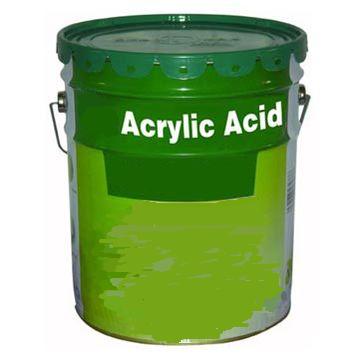 In the midst of falling oil prices and cheaper petrochemical prices, Novozymes recently announced that BASF has exited its collaboration with the company and Cargill on their bio-acrylic acid project. Coincidence? Maybe. Correct me if I’m wrong but a big chemical company such as BASF could not be that shortsighted to quit long-term sustainability and raw material sourcing strategies just because crude oil prices have crashed down in the past several months. The historical volatility of crude oil prices is what several chemical companies have been attracted to other raw material sources in the first place.
In the midst of falling oil prices and cheaper petrochemical prices, Novozymes recently announced that BASF has exited its collaboration with the company and Cargill on their bio-acrylic acid project. Coincidence? Maybe. Correct me if I’m wrong but a big chemical company such as BASF could not be that shortsighted to quit long-term sustainability and raw material sourcing strategies just because crude oil prices have crashed down in the past several months. The historical volatility of crude oil prices is what several chemical companies have been attracted to other raw material sources in the first place.
But it is interesting why BASF is now abandoning this bio-acrylic acid project. According to a recent press release from Novozymes, the company along with its partner Cargill will continue their work to commercialize bio-based 3-hydroxypropionic (3-HP) acid and acrylic acid from renewable materials, and at the same time, the companies have initiated efforts to find a new commercialisation partner.
Novozymes and Cargill have been working on this project since 2008 but BASF joined the R&D collaboration in 2012. In fact, the three companies announced last year in September that it has achieved a milestone by successfully converting 3-HP to bio-acrylic acid and superabsorbent polymers (SAPs). The blog posted this news but it seems BASF has already removed the link to this press release in their website. BASF has been quiet about the news on its abandonment of the R&D collaboration.
Talking to Novozymes, the company seems to be also baffled about this decision from BASF (more about my interview with Novozymes on Tecnon OrbiChem’s February Bio-Materials newsletter). According to their press release last year, the companies have been working on the set-up of a small integrated pilot plant until the end of 2014, operated by Cargill and supported by Novozymes.
Current petro-based acrylic acid is produced by the oxidation of propylene. As part of a special report, I will look more onto the current and projected market fundamentals for both propylene and acrylic acid global markets in my Bio-Materials newsletter. From what I recall one-to-two years ago, there had been talks in the petrochemical industry of mid-to-long-term forecast on the shortage of propylene especially in North America as propylene supply from steam crackers has been reduced by about 30% since 2007 because of the shift to shale gas cracking. Propylene production mostly relies on the pyrolysis of heavier feedstock such as naphtha.
 Has this supply/demand projection in propylene and acrylic acid has now shifted in the other direction? Going downstream, I would have thought that consumer products companies especially producers of diapers, feminine products, wipes, and other materials that use SAPs would have been looking for alternative raw material sources. But then, from what I have also heard, most big-time acrylic acid producers (and BASF is the biggest of them all), are also vertically integrated in the production of SAPs.
Has this supply/demand projection in propylene and acrylic acid has now shifted in the other direction? Going downstream, I would have thought that consumer products companies especially producers of diapers, feminine products, wipes, and other materials that use SAPs would have been looking for alternative raw material sources. But then, from what I have also heard, most big-time acrylic acid producers (and BASF is the biggest of them all), are also vertically integrated in the production of SAPs.
Novozymes and Cargill will also have difficulty finding a commercialization partner in the acrylic acid market as big as BASF. I have been receiving inquiries on how the bio-acrylic acid market development has been doing, and this is definitely a big set-back. Another collaboration working on this field is from Dow Chemical and OPX Biotechnologies (another one that has been a bit quiet these past few months). There had been reports of Arkema and Nippon Shokubai looking into this but no announcements have been released from these companies in the past few years. Novomer is also working on using CO2 to produce acrylic acid but the company is currently busy with their commercialization of their CO2-based polyols. Archer Daniels Midland (ADM) has also been looking into bio-acrylic acid development but the company has been quiet about it.
So will there be further positive progress this year for bio-acrylic acid? Only time will tell.
By the way, on a brighter note, the blog recently read this article written by Genomatica’s Christophe Schilling on ICIS Chemical Business, on the important role of industrial biotechnology in the midst of these crude oil price volatility.




